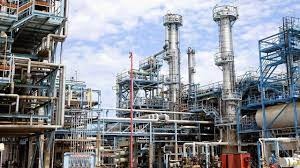The Nigerian National Petroleum Company Limited (NNPCL) has signed Memoranda of Understanding (MoU) with Cote d’Ivoire, Liberia, Benin Republic, and the Republic of Guinea for the Nigeria-Morocco Gas Pipeline Project (NMGP). The project, spanning 5,600 kilometers and traversing 13 African countries, aims to monetize Nigeria’s vast natural gas resources, generate additional revenue, and eliminate gas flaring.
The NMGP, a collaborative initiative between the federal government of Nigeria and the Kingdom of Morocco, was conceptualized during King Mohammed VI’s visit to Nigeria in December 2016. It seeks to diversify gas export routes, supply gas to Morocco, 13 other African countries, and Europe. The pipeline will originate from Brass Island in Nigeria and connect to the existing Maghreb European Pipeline (MEP) in North Morocco.
The signing ceremony took place at the headquarters of the Economic Community of West African States (ECOWAS) in Abuja during the first steering committee meeting of the project. Mele Kyari, the Group Chief Executive Officer of NNPCL, expressed satisfaction with the progress made, emphasizing the commitment of host governments, ECOWAS Commission, and National Oil Companies (NOCs) to the project’s success.
Kyari highlighted that the Front End Engineering Design (FEED) phase II study is over 70% complete, and the tendering process for Surveys, Environmental and Social Impact Assessment (ESIA), as well as Land Acquisition & Resettlement Policy Framework (LARPF), is on track. He thanked the Nigerian government for entrusting NNPC Ltd with the strategic project and emphasized its potential to support economic growth, industrialization, and job creation across the continent.
Mr. Sédiko Douka, the ECOWAS Commissioner for Infrastructure, Energy, and Digitisation, affirmed the commitment of ECOWAS member states to the project. He emphasized the importance of the gas pipeline project for strengthening electricity production, stimulating industrial and agricultural development, and transitioning to cleaner energy sources in the region. Douka assured stakeholders of ECOWAS’ readiness to contribute fully to the project’s development and success.
Amina Benkhadra, the Director General of ONHYM, emphasized that the signing event represented a progressive step towards social and economic development, ensuring energy security and accessibility for the total development of Africa by Africans. Similar MoUs have already been signed with ECOWAS, Mauritania, Senegal, The Gambia, Guinea-Bissau, Sierra Leone, and Ghana, demonstrating the regional significance of the gas pipeline project.
This collaborative effort signifies a milestone in Africa’s energy sector, paving the way for enhanced energy integration, economic growth, and a cleaner energy future for the continent. Stay tuned for further updates on this significant project.










